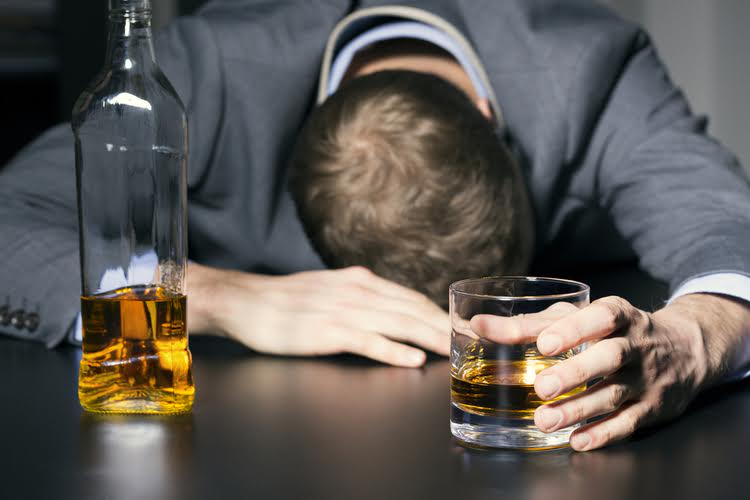8 Ways To Get Rid Of Brain Fog After Drinking Alcohol
Tiredness is normal as part of a hangover, but if you’ve ever tried to get sober, you know that extreme fatigue is a common side effect of alcohol withdrawal. Alcohol withdrawal can occur when a person who has used alcohol for a significant period of time stops drinking or significantly decreases their use. Alcohol withdrawal can have a broad range of symptoms, some of which can be dangerous or even life-threatening if not treated. That’s why it’s vital to consult a physician before you stop drinking in order to create a plan to stop drinking or taper down safely. A rare but very serious syndrome called delirium tremens can occur during alcohol withdrawal. Also known as DTs, an estimated 2% of people with alcohol use disorder and less than 1% of the general population experience them.
Sobriety brings the gift of learning new ways to effectively spend your time. Engaging in new activities is a great way to give your brain a workout. In particular, learning a new language or how to play an instrument is the equivalent of rigorous cardiovascular exercise for your brain. The fortunate takeaway for recovering addicts is that there are simple ways to feed and train your brain in order to regain mental clarity that is equal or close to where it was before addiction.
Symptoms of Alcohol Withdrawal
When it comes to alcohol’s effects on the brain, the consequences are profound. It slows down brain activity, leading to issues like memory loss, poor muscle coordination, and delayed reaction times. In more extreme cases, excessive alcohol intake can trigger blackouts, resulting in episodes of amnesia that leave individuals confused and possibly causing damage to the brain. Taking into account factors such as severity of alcohol abuse, mental health, and lifestyle habits can help you reduce the duration of brain fog after quitting alcohol, and this is when your alcohol recovery timeline begins.
- While it can be tempting to revert to old, dishonest tendencies, leading with honesty will promote a successful recovery.
- It helps individuals recognize and change negative thought patterns and behaviors that lead to alcohol misuse.
- Someone who cuts themselves off from drinks may experience extreme pain or medical problems like delirium tremens.
- People with severe symptoms of intoxication or symptoms that last many hours are at risk of alcohol poisoning.
Brain fog can also be caused by chronic stress, hormonal changes or blood sugar imbalances. Sometimes, brain fog is less related to slow brain function and due more to overactive brain activity, such as over-analyzing a simple situation or obsessing about a problem. One way to let go of nit-picking or ruminating thoughts is to channel your energy into a creative activity, like drawing, needlepoint or cooking. Specifically, one study revealed that English walnuts “reduce the oxidant and inflammatory load on brain cells” and improve the transmission of neural messages in the brain, as well as aid in the removal of toxic proteins. The brain fog was a direct result of getting sober, and I knew that if I returned to drinking it would disappear.
How to Overcome Brain Fog and Regain Clarity During Recovery
By managing stress through exercise, meditation, deep breathing, and journaling, you can clear the fog and enhance your mental clarity. Previous studies have also shown that, during cognitive tasks, individuals who binge drink perform significantly worse. For example, spatial working memory and executive function have both been found to suffer. These symptoms generally appear 12 to 24 hours after your last drink.

“Alcohol is a huge culprit for brain fog because of its effects on both hydration and your central nervous system,” explained Mitri. “Not only can you feel foggy while drinking, but alcohol brain fog its effects can be felt for days after as well”. Heavy, long-term alcohol use takes a toll on the liver, and liver damage is one of the most common long-term effects of alcoholism.
Healthy Skin, Feeling Better
While these symptoms are more severe than Stage 1, they are not life-threatening. You might not have any issues after your short-term withdrawal goes away. But sometimes uncomfortable symptoms stick around for months or years.

These first few weeks are critical because they are when the risk of relapse is highest. When that person cuts out alcohol, there is a period when their brain hasn’t yet received the message and still overproduces the stimulating chemicals. With alcohol out of the equation, though, these chemicals cause withdrawal symptoms. Over time, however, the body builds a tolerance to alcohol, and a person may have to drink more and more to get the same feeling.
Experiencing brain fog following addiction can be a frustrating experience, but hang in there. The smoke will clear in due time and your noggin will be back in shape before you know it, especially with the help of these brain-boosting practices. They then develop healthy thought patterns that help them cope with stress and refuse alcohol. A person should check themselves into an alcohol detox program and receive medication to wean themselves off drinks. While they are in the program, they should drink plenty of water and eat nutritious food. They may not remember people’s names, even people who they know well.
9 Halloween cocktails to try in downtown Kalamazoo – MLive.com
9 Halloween cocktails to try in downtown Kalamazoo.
Posted: Mon, 30 Oct 2023 16:21:00 GMT [source]
Alcohol’s most severe long-term consequences are brain damage and nerve cell death. Unlike in other parts of the body, some nerve cells (particularly those in the frontal cortex and cerebellum) are not replaced once destroyed. Long-term drinking affects the functions of the brain that control inhibitions, decision-making, problem-solving, and judgment.








